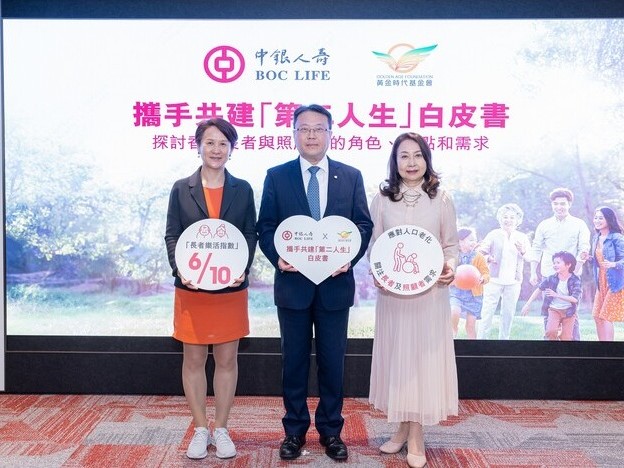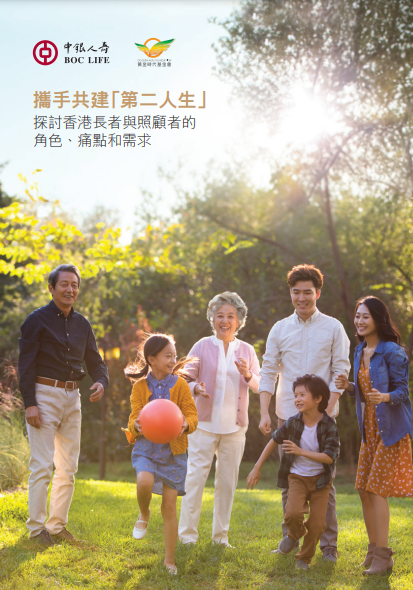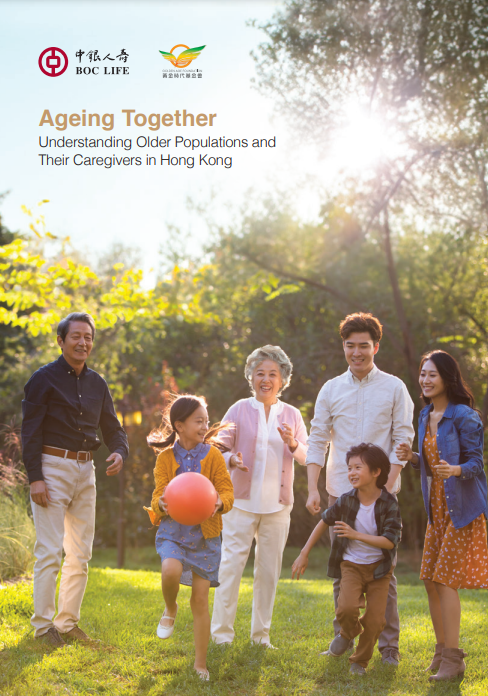
To develop products and services that will help our Hong Kong customers better prepare for their retirement, BOC Life conducted a market study in 2022 to gain insight into the experiences, pain points and needs of retirees and caregivers regarding retirement and elderly care services.
Using the design thinking methodology and employing both qualitative and quantitative research, the study interviewed a group of retirees aged 55 to 75 and a group of caregivers aged 30 to 59, whose socioeconomic backgrounds are middle class or above. To gauge how satisfied the retirees are with their present situation, we created the “Ageing Well Index”, which covers four main aspects: health, financial situation, family and social relationships as well as community support. The average score among the retirees is 6 out of 10, suggesting moderate satisfaction.
While 81% of retirees expressed satisfaction with their current situation, only 63% of caregivers thought their retired parents were satisfied. This discrepancy, which widens as the age of the retirees goes up, suggests that caregivers may not always know the real thoughts and needs of their elderly parents. Meanwhile, many retirees who claimed to have received a decent income and education believed that they are well-informed and have made sufficient preparations for their retirement. Their children, in turn, find it unnecessary to get involved in their parents’ retirement planning, at least not in the short run. However, without early communication with their parents and making preparations for the future, caregivers may one day find themselves at a loss when their ageing parents do end up needing special care or services. To prevent this from happening, the participation of caregivers in their parents’ retirement planning is highly encouraged. The study also highlights the importance of identifying and supporting the needs and providing support for caregivers.
We believe the best time for retirement planning is between the ages of 35 and 50. People between these ages with caregiving responsibilities should not only plan for their own retirement but also the elderly care arrangements of their parents. By doing the latter, not only will caregivers help their ageing parents feel more assured about their future, but they will also be better equipped when it comes to planning for their own retirement and care arrangements.
Based on the results of our study, we believe that effective retirement planning should include the following considerations:
- Prevention and management of risks in three main areas, namely personal finance, health and living environment
- Continuous learning to enhance autonomy and skills after retirement
- Exploring and understanding related products and services that will help enhance post-retirement quality of life
To start, caregivers and the elderly should discuss the needs and expectations of both sides. Only then can both parties carry out their jointly devised plans based on realistic expectations and work step by step towards a happy old age.


